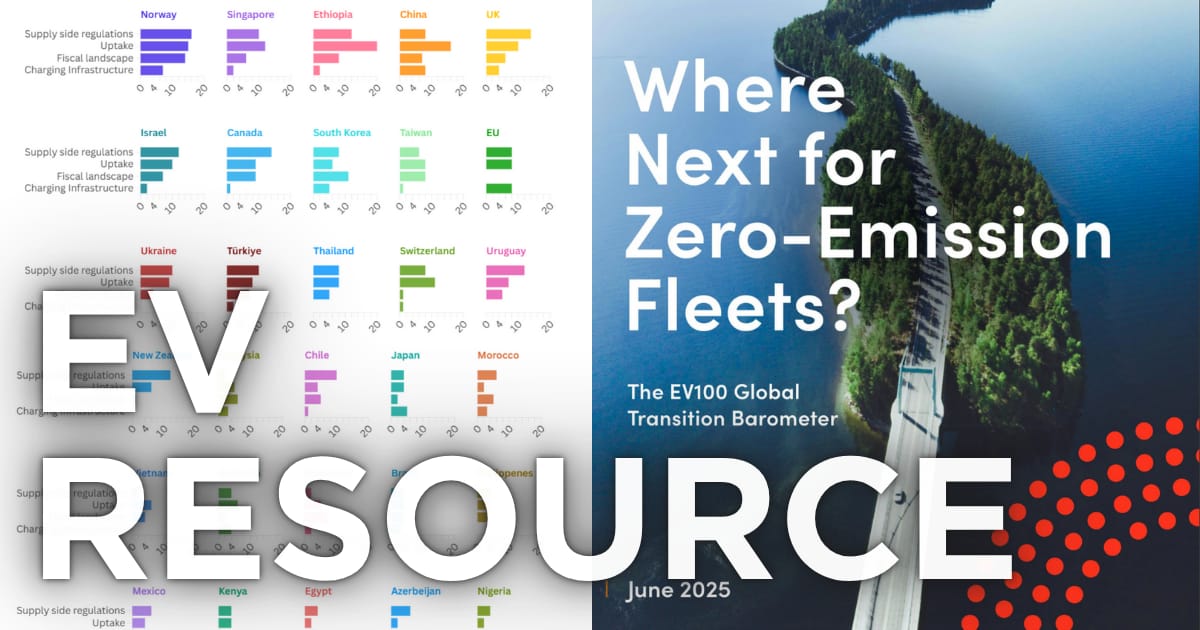EVWire brief: The updated commitment structure for EV100 network reflects diverse market conditions, with region-specific deadlines, and plug-in hybrids no longer count. Now, they’ve also launched the EV100 Transition Barometer (23-page pdf), which assesses the global landscape for fleet electrification, and has classified 13 regions as leading fleet electrification markets:

Explainer: New AutoMotive was commissioned to research and implement a tiering methodology to sort markets by EV readiness. It was carried out in two phases, and 39 countries were reviewed, while European Union was treated as a single market in this data.
The final criteria assigned weighted scores across the four key headings. The more useful a metric is in projecting future EV uptake, the higher the possible score.
For supply-side regulations and targets: up to 12 points based on the strength of a mandate or standard.
For charging infrastructure: up to 4 points based on the existence of a chargepoint strategy, the funding behind it, and any reliability or interoperability standards.
For fiscal and energy policy: up to 5 points based on available incentives, tax advantages and relative electricity cost.
For uptake: up to 10 points based on the LDV uptake to date, with 10 points recognising 30% or more of new car sales. For medium- and heavy-duty vehicles (MHDV), a similar scoring system was adopted.
The score you see per country above is the combination of LDV and HDV scores.
We recommend reading especially from the page 13 in the research document for a quick overview of the real situation per the markets analyzed.
Some results:
The scores, on LDV (y) and MDV (x) axis:

The combined scores per country, per the measured criterias:


Here’s how Climate Group’s EV100 network defines itself: “a coalition of committed companies at all stages of the EV transition. Our members are on a journey to fully electrify their corporate fleets – to ambitious deadlines, and in markets around the world. By speeding up the shift to electric vehicles (EVs), they drive up sales, and bring down prices – making EVs rapidly more affordable and accessible for all.”
Source: The Climate Group






